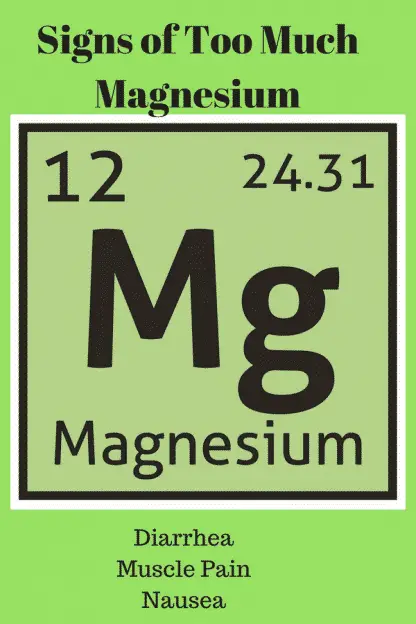updated 10/8/2023 Magnesium is the best! Magnesium is involved in over 300 chemical reactions in the body. In this article, we will discuss what magnesium is and the best time to take magnesium. In this article, we will discuss the best magnesium for sleep and anxiety.
Which Magnesium is Best for Sleep and Anxiety?
Magnesium is a mineral that is involved in so many body processes. The parts of the brain which are the pituitary and the hypothalamus need magnesium to function. The best time to take magnesium depends on what you are taking it for.
In this article, we will be discussing how it is best to take magnesium at night because we will be discussing magnesium and insomnia. Magnesium has been used for all kinds of health problems.
What is Insomnia?
Everybody at one time has had problems with sleeping. The reasons could be stress, worry, or working the night shift. However, these problems are usually temporary. However, there are some times where sleep problems are chronic.
Insomnia is defined as an individual’s report of difficulty in falling asleep. It is estimated that 30% of people have reported problems with falling asleep.
Some of the symptoms of insomnia are:
- Difficulty initiating sleep
- Difficulty maintaining sleep
- Waking up too early
- Poor quality of sleep
According to the Diagnostic and Statistical Manual of Mental Disorders, in order to be diagnosed with insomnia, a person must have the following conditions met:
- Insomnia symptoms must be present for more than one month
- The symptoms do not occur with another mental disorder
- The symptoms should not occur with other medical symptoms
I know you are saying I just want to go to sleep!!!!
Sure, there are medications out there to help you fall asleep. However, the medications can be expensive and there are side effects.
However, I have a solution for your insomnia: MAGNESIUM !!!
What is Mg or Magnesium?
I am sure you have heard of magnesium. But are you aware of the benefits of magnesium? Are you aware that magnesium is inv0lved in over 300 chemical processes in the body?
According to the American Osteopathic Association, it is estimated that 50% of people are deficient in magnesium. It is difficult to get enough magnesium in the diet because of the way the food in today’s time is harvested. The pesticides that are used in the soil are killing off the vitamins and minerals.
Here is a list of foods that have the highest amounts of magnesium.
If you don’t have enough magnesium, every system in the body is affected:
- Your heart can’t properly function without magnesium
- Your muscles and joints can’t function without magnesium
- Potassium and Vitamin D levels are altered without magnesium
- You are likely to get diabetes without magnesium
Although these systems are important, we are going to concentrate on the neurological system. After you finish reading this you will run to get some magnesium to help with your sleep issues !!
Why Does Magnesium Help You To Fall Asleep?
The brain uses plenty of magnesium. The main area of the brain that is responsible for sleep is the hypothalamus. The hypothalamus needs tons of magnesium to function correctly.
The hypothalamus in the brain coordinates the sleep rhythms in other tissues throughout the body.
Magnesium is the 4th largest electrolyte in the body. Magnesium is involved in many functions especially the neurotransmitter synthesis.
Studies have shown that magnesium is involved in the regulation of the central nervous system. GABA plays a critical role in sleep regulation. GABA stands for Gamma-Aminobutyric Acid.
GABA is a neurotransmitter that sends messages throughout the brain and nervous system. GABA regulates responses to nerves, nerve cells, stress, and sleep. The GABA neurotransmitter needs magnesium to function.
In fact, studies have shown magnesium deficiency is related to depression.
Trials Were Done to Determine the Best Magnesium For Sleep
A trial was done that included 46 elderly people. They were given Magnesium 500mg for 8 weeks. The physical activity and sleep logs were completed.
In the magnesium group, there were significant increases in sleep time.
Ironically some of the symptoms of sleep deprivation such as:
- Falls risk
- Decreased physical function
- Cognitive impairments were decreased.
We know that magnesium deficiency can also cause the above disorders.
Another trial was done by the Jiangsu Nutrition Study where 1400 adults aged 20 and above had their magnesium intake assessed by doing a 3-day food diary.
The average intake of Mg for this study was 332 mg. The average recommended a daily intake of magnesium is 400mg. People in the study reported less daytime falling asleep and snoring at night.
Why Sleeping Pills Are Not the Answer
Sleeping agents such as Ambien and Dalmane have a variety of side effects. These types of medications are especially detrimental to the elderly.
Some doctors even prescribe Benzos such as Ativan, Xanax, and Valium. Some of these drugs actually have black box warnings on them. Black box warnings are considered high-risk side effects by the FDA.
Sleeping pills have been known to cause hallucinations and dangerous sleepwalking in all age groups. Magnesium is a great alternative for sleeping because it not only does promote sleep, magnesium has a plethora of other health benefits.
Which Type of Magnesium is Best For Insomnia or Difficulty Falling Asleep
Although magnesium glycinate was used in the trials, in my experience all forms of magnesium are effective. People have different chemistries and not every form of magnesium will work for everyone.
Magnesium Supplements For Insomnia
Magnesium Glycinate
Magnesium Glycinate is the magnesium salt of glycine. Many people find that Magnesium glycinate is easier for the body to absorb. It also does not cause as many side effects such as loose stools. People take this magnesium for anxiety, insomnia, and muscle relaxation.
Magnesium Taurate
People take magnesium taurate for insomnia and its cardioprotective properties. Although people with certain heart conditions like high blood pressure and chest pain use magnesium taurate, there are still people who take the magnesium taurate for sleep.
In fact, Taurine is an essential amino acid that has been shown to improve your exercise ability and to lower your risk of disease.
Magnesium Oil
Magnesium oil is the best for me! I have some digestive disorders and it is hard for me to digest pills. I am able to spray the magnesium oil on my skin and rub it into my skin.
This way the magnesium oil goes straight into my bloodstream and it bypasses my gut. I have had problems with sleep and my goto is magnesium oil. Within 15 minutes of spraying 10 sprays of the oil on my feet, I am dozing off. The magnesium oil brand listed above is all trusted brands.
When I rub magnesium oil on my skin, within 20 minutes I am very relaxed and mellow. Within an hour, I am going to sleep.
I get this effect quicker with magnesium oil.
Here are some high ranked magnesium oils:
Magnesium Dosages
The average dose of magnesium that people take is 400-500 mg a day divided into 2 doses. The main symptom of taking too much magnesium is when a person has loose stools. With magnesium oil, the average dose is 400mg per day.
Best Magnesium For Sleep
There has been a plethora of Pubmed trial and NIH trials that have shown that Mg. supplementation does indeed help insomnia symptoms. The body needs magnesium in over 300 processes in the body. The brain especially needs Mg to function.
I know many integrative doctors who will prescribe magnesium over sleeping pills. However, it is somewhat difficult to find a mainstream doctor who will prescribe magnesium over sleeping pills. Which Magnesium is best for sleep and anxiety can vary. Sometimes you have to experiment.
Side Effects of Magnesium
I wrote an article about magnesium overdose symptoms. This article here discusses magnesium side effects.
My name is Phyllis Robinson MSN, RN. I have been a Registered Nurse for 27 years in the Cardiac Intensive Care Unit. I am passionate about cardiac care and heart disease. I also want this blog to be an educational tool that people can refer to for traditional and alternative treatment. I will blog on heart disorders such as high blood pressure, congestive heart failure, cardiomyopathy, and high cholesterol.
I received my Nursing degree from Baltimore Community College.
I went on to receive my Masters in Nursing from Walden University
I have worked for almost 30 years in Critical Care with a focus on heart health. I am an advocate of preventive healthcare.



